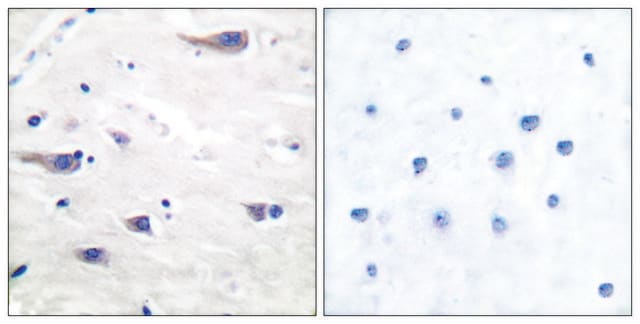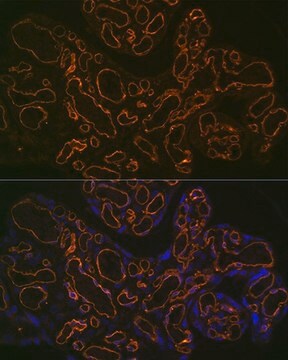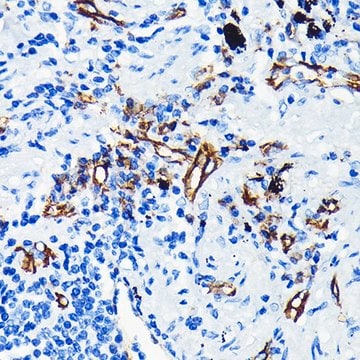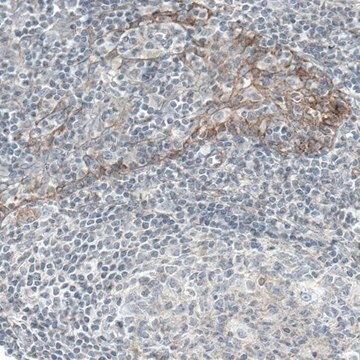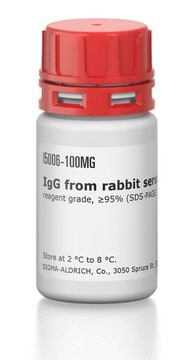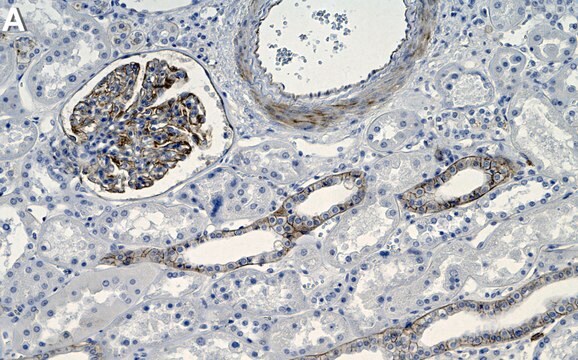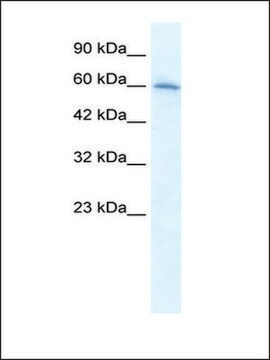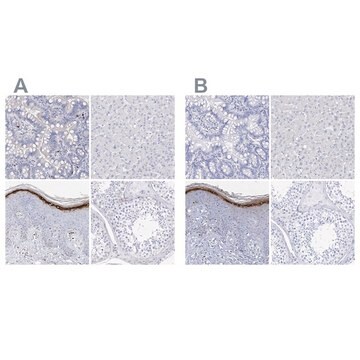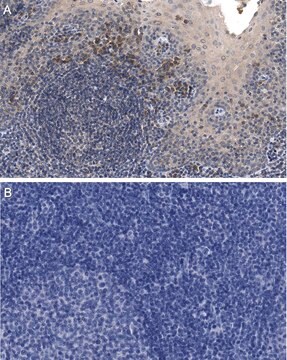SAB4700465
Monoclonal Anti-CD31-Biotin antibody produced in mouse
clone MEM-05, purified immunoglobulin, buffered aqueous solution
Synonym(s):
Anti-PECAM-1, Anti-PECAM1
Sign Into View Organizational & Contract Pricing
All Photos(1)
About This Item
UNSPSC Code:
12352203
NACRES:
NA.41
Recommended Products
biological source
mouse
Quality Level
conjugate
biotin conjugate
antibody form
purified immunoglobulin
antibody product type
primary antibodies
clone
MEM-05, monoclonal
form
buffered aqueous solution
species reactivity
human
concentration
1 mg/mL
technique(s)
flow cytometry: suitable
isotype
IgG1
NCBI accession no.
UniProt accession no.
shipped in
wet ice
storage temp.
2-8°C
target post-translational modification
unmodified
Gene Information
human ... PECAM1(5175)
Related Categories
General description
The antibody MEM-05 reacts with CD31 (PECAM-1), a 130-140 kDa type I transmembrane glycoprotein expressed on monocytes, platelets, granulocytes, endothelial cells and stem cells of the myeloid lineage.
Immunogen
Leukocytes of patient suffering from LGL-type leukaemia
Application
The reagent is designed for Flow Cytometry analysis. Suggested working dilution is 1:500. Indicated dilution is recommended starting point for use of this product. Working concentrations should be determined by the investigator.
Features and Benefits
Evaluate our antibodies with complete peace of mind. If the antibody does not perform in your application, we will issue a full credit or replacement antibody. Learn more.
Physical form
Solution in phosphate buffered saline, pH 7.4, with 15 mM sodium azide.
Not finding the right product?
Try our Product Selector Tool.
Storage Class Code
10 - Combustible liquids
Flash Point(F)
Not applicable
Flash Point(C)
Not applicable
Choose from one of the most recent versions:
Already Own This Product?
Find documentation for the products that you have recently purchased in the Document Library.
E Prager et al.
Journal of immunology (Baltimore, Md. : 1950), 166(4), 2364-2371 (2001-02-13)
CD31 is a member of the Ig superfamily expressed on various cell types of the vasculature, including a certain subpopulation of T lymphocytes. Previous reports suggest that interaction of CD31 with its heterophilic ligand on T cells (T cell CD31
Our team of scientists has experience in all areas of research including Life Science, Material Science, Chemical Synthesis, Chromatography, Analytical and many others.
Contact Technical Service